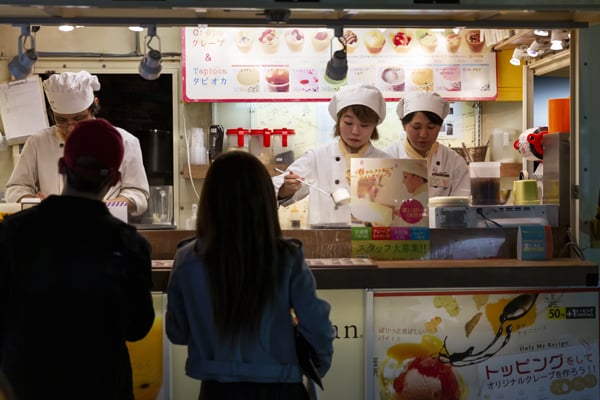
Retiring in Tokyo is an appealing prospect for many international retirees. The city offers a unique blend of traditional culture and modern conveniences, with a high standard of living and a wealth of recreational and cultural activities. However, retiring in Tokyo also presents some challenges, such as the high cost of living and the language barrier.
Cost of Living
One of the biggest challenges for retirees in Tokyo is the high cost of living. The city is one of the most expensive in the world, with high prices for housing, food, and other necessities. However, there are ways to live more affordably, such as choosing a smaller apartment or eating at local markets and restaurants.
Climate
Tokyo has a temperate climate, with four distinct seasons. Summers can be hot and humid, while winters are generally mild with occasional snowfall. Spring and autumn are particularly pleasant, with comfortable temperatures and beautiful natural scenery.
Healthcare
Tokyo is home to some of the best hospitals and doctors in Japan, and retirees can expect a high standard of healthcare. However, the cost of private healthcare can be high, and there may be language barriers to navigate.
Public Healthcare System
Japan has a universal healthcare system, and international retirees can enroll in the National Health Insurance scheme. This provides coverage for a wide range of medical services, although there may be some out-of-pocket costs.
Residency Options for Retirees
Japan offers a range of visa options for retirees, including a long-term resident visa and a designated activities visa. These allow retirees to live in Japan for an extended period, although there are certain requirements to meet, such as proving financial self-sufficiency.
Parks and Recreational Activities
Tokyo offers a wealth of recreational activities for retirees, from traditional tea ceremonies to modern art galleries. The city is also home to many beautiful parks, such as Ueno Park and Yoyogi Park, which are perfect for leisurely strolls or picnics.
Restaurants
From sushi to ramen, Tokyo is a food lover’s paradise. There are countless restaurants to explore, including affordable options like Yoshinoya for beef bowls and Sukiya for gyudon. For a more upscale dining experience, retirees can try places like Tsukiji Sushisay in the famous Tsukiji Fish Market.
Learning the Language
Learning Japanese can be a challenge, but there are many language schools in Tokyo that cater to international students. The Japan Language School (JLS) and the Tokyo Language School (TLS) are two popular options, offering a range of courses for all levels.
Local Culture
Japanese people are generally polite and reserved, and they value harmony and respect. Retirees in Tokyo can enjoy a safe and peaceful lifestyle, although they may need to adapt to certain cultural norms and customs.
Markets
Tokyo has many vibrant markets, where retirees can buy fresh produce, traditional crafts, and other goods. The Tsukiji Fish Market is a must-visit, while the Ameya-Yokocho Market offers a wide range of products from food to clothing.
Meeting People and Volunteering
Meeting new people can be a challenge for retirees in a new city, but there are many clubs and organizations in Tokyo that cater to international residents. Volunteering is also a great way to meet people and give back to the community. Organizations like Hands On Tokyo offer a range of volunteer opportunities.
Housing and Neighborhoods
Most retirees in Tokyo live in apartments, which can range from compact studio apartments to larger, luxury units. Popular neighborhoods for retirees include Minato, which is centrally located and home to many embassies, and Setagaya, which is quieter and more residential.
Transportation
Tokyo has an extensive public transportation system, including trains, buses, and subways. Most places are easily accessible by public transport, and many retirees find that they do not need a car. The city is also very walkable, with well-maintained sidewalks and pedestrian-friendly policies.


